Description
ABSTRACT
The Single Contract Basis of International Corporate Taxation: A Review of Saipem v FIRS
Okanga Okanga*
ABSTRACT
Nigeria’s principal corporate tax legislation, the Companies Income Tax Act 1961, stipulates as a basis for the taxation of a nonresident company deriving income in Nigeria what it terms a “single contract.” This, according to the statute, entails a contract that embodies the activities of surveys, deliveries, installations or construction (common features of what is in common parlance termed a “turnkey project”). A major challenge with the application of the provision lies in the comprehension of the pivotal term, “single contract.” A diversity of views on the import of the term paints a telling picture of ambiguity and underlies the complication of its applicability. A recent decision of the Nigerian Court of Appeal provided some much-needed judicial perspective on the point. The Court in the said case advanced a line of reasoning which almost certainly guarantees tax liability in Nigeria for a nonresident company participating in a Nigerian turnkey project regardless, it seems, of how the relevant contract is structured or performed – an apparent leaning towards an anti-avoidance objective of statutory interpretation. This paper, in search of clarity, examines the decision of the Court in Saipem Contracting Nig. Ltd & 2 Ors. v Federal Inland Revenue Service & 2 Ors in view of the language of the Act, case law and other perspectives both at home and abroad.
Keywords: Single contract, International corporate taxation, Nonresident company, turnkey project
INTRODUCTION
The income of a foreign company (‘nonresident company’) is taxable in Nigeria if the company carries on business in Nigeria and derives profit from that business. Section 9(1) of the Companies Income Tax Act (“CITA” or “the Act”) provides that tax is payable for each year of assessment upon the profits of any company accruing in, derived from, brought into, or received in, Nigeria. Literally, a foreign company’s income is deemed to be derived from Nigeria where: (a) the foreign company derives profit from a fixed base that it has in Nigeria; (b) the foreign company does business in Nigeria through a dependent agent; (c) where the profit derives from a Nigerian single contract; and (d) where the foreign company’s profit results from an adjustable transfer pricing arrangement with a related Nigerian enterprise.1
Section 13(2)(c) of CITA– of primary interest to this work– reads ‘the profits of a company other than a Nigerian company from any trade or business shall be deemed to be derived from Nigeria if that trade or business activities involves a single contract for surveys, deliveries, installations or construction’.
*LL. B (Nig.), BL (Abuja). Associate at Streamsowers & Kohn, Lagos. The author has extensive research interest in taxation, dispute resolution and commercial practice.
- See CITA, s 13(2).

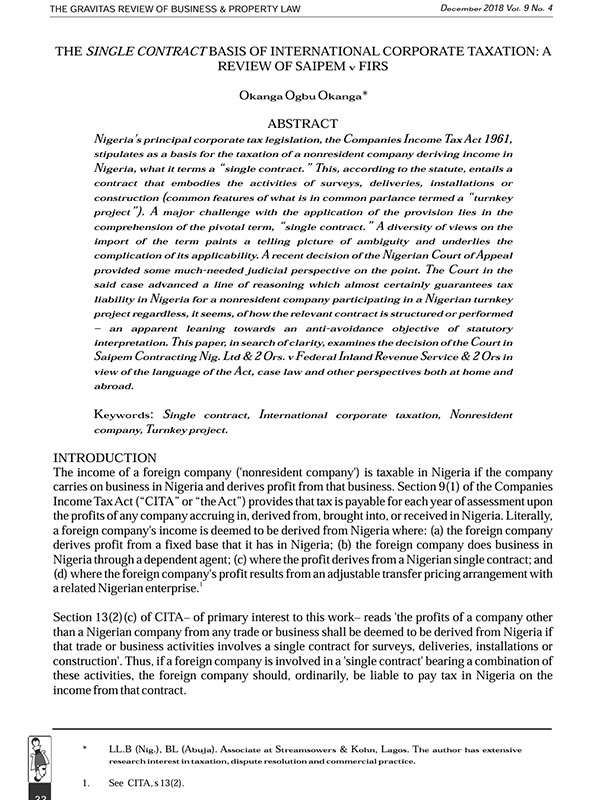
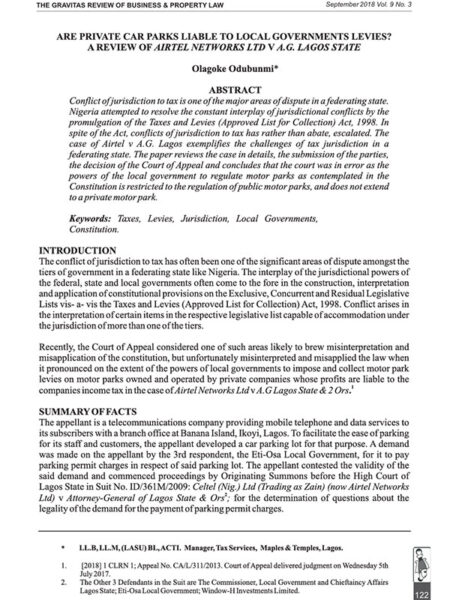
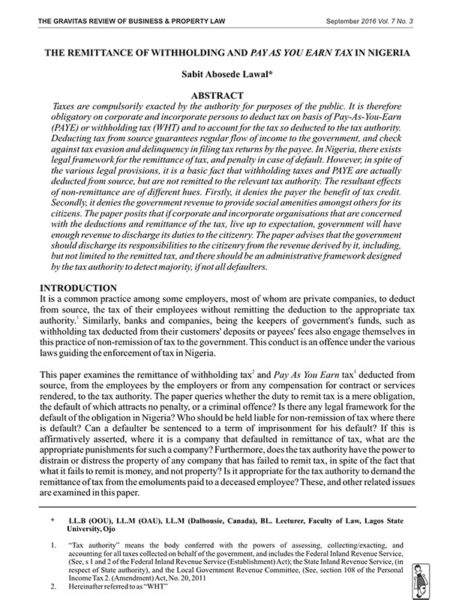
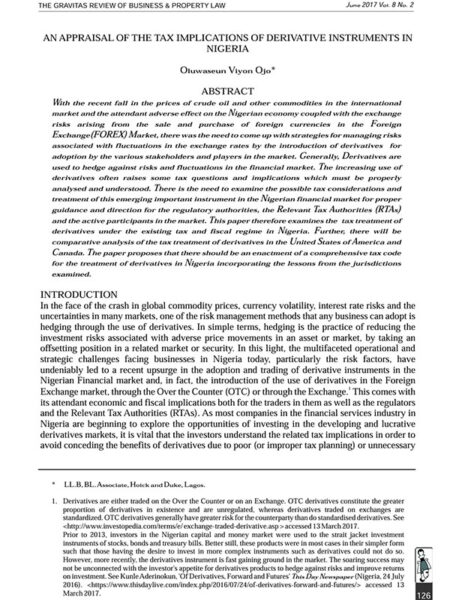
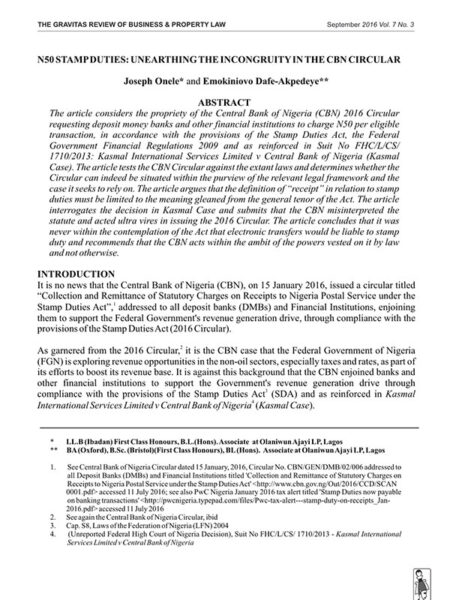


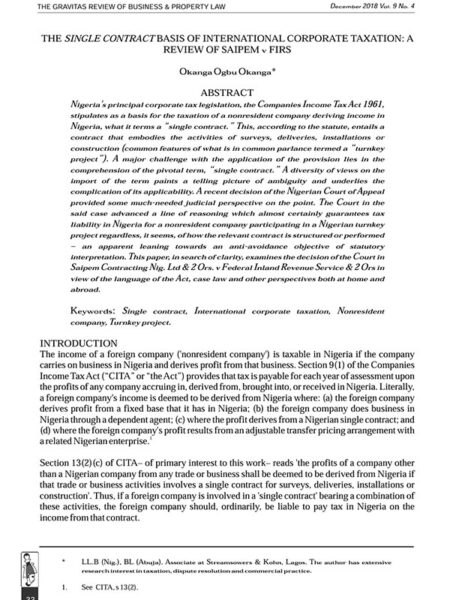
Reviews
There are no reviews yet.